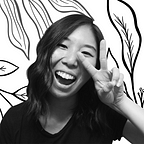It’s a difficult time to be an Asian American woman.
With the recent spike in hate crimes toward the AAPI community, culminating with the events of the Atlanta spa shooting, I’ve found myself feeling distraught, drained, and terrified for my own safety. I feel guilty for turning these stories toward myself when we should be centering the victims. But I can’t help but wonder — “What if that was me? What if it was my mom? What if it was a friend?” It could have been any of us.
Vestiges of the model minority myth are engrained in me, making me believe that my proximity to whiteness means that I don’t experience racism like other BIPOC communities in America. Yet the impacts of racism and white supremacy have always felt so familiar to me as an Asian American woman, and I repeatedly shrug them off as not having to do with race or gender.
Believing this narrative — and the constant jousts that I’m just being too sensitive, that I’m overthinking it, that I can’t take a joke — has hurt me in more ways than I can express. I am constantly looking to others to validate my experiences. I’ve been gaslit to the point that I don’t trust my own judgment.
It’s taken mass shootings and countless hate crimes for Asian Americans everywhere to realize that racism is real and still happens to us. The collective awakening we are undergoing has helped me see that I’m not alone, that this happens to others, and that my experiences are real and valid. Even more than that, it’s helped me see just how deeply white supremacy continues to impact my everyday life.
It’s the ongoing erasure of our stories and identities. The failure to spell and pronounce our names correctly. Shifting the focus from the victims to humanizing the shooter. The appropriation and “remixing” of traditional Asian cuisine by white cooks and food bloggers. Not being credited for your contributions on a big project.
It’s the objectification and exotification of Asian American women. The illusion that the victims represented objects of temptation to be eliminated. The hypersexualization of Asian women anytime we appear in the mainstream media. The times you’re just walking to the grocery store and a man rolls down his car window and yells “Konnichiwa, honey”.
It’s the stereotype that Asian women are subservient and submissive. Targeting Asian women because they “won’t fight back”. Having a male colleague co-opt something you just said, then being met with feedback that you should speak up more in meetings. Being passed over for promotions because you’re not strategic enough to lead.
It’s being a perpetual foreigner in the only country you’ve ever known. Being told to “go back to where you came from.” Getting targeted and assaulted for bringing COVID-19 to America. Seeing white influencers make money from the fox-eye trend while you’re teased for your squinty eyes. Being asked if you’re tired of Asian food when you visit a restaurant of another culture’s cuisine.
The one thing I wish that people would understand is that these are all flavors of the same story. That “harmless” words can turn into violence and pain. That hate crimes are just the tip of the iceberg. That because racism looks different towards Asian Americans than it does toward other BIPOC communities, it doesn’t mean that it doesn’t exist. That at its root, this all upholds the system of white supremacy. Why has it taken this scale of pain and hatred to acknowledge the experiences of the Asian American community? Why did it have to come to this to finally be seen?
Even in a tragic death at the hands of hate, we are not given the dignity we deserve. It’s painful to see how little value the lives of people like me have in this country. I hurt for all Asian American women. We deserve so much more.
Thank you for coming on this journey of discovering my Asian American identity. If this is your first time here, you can follow my journey with a few previous posts I’ve written as my identity has evolved over the years.
